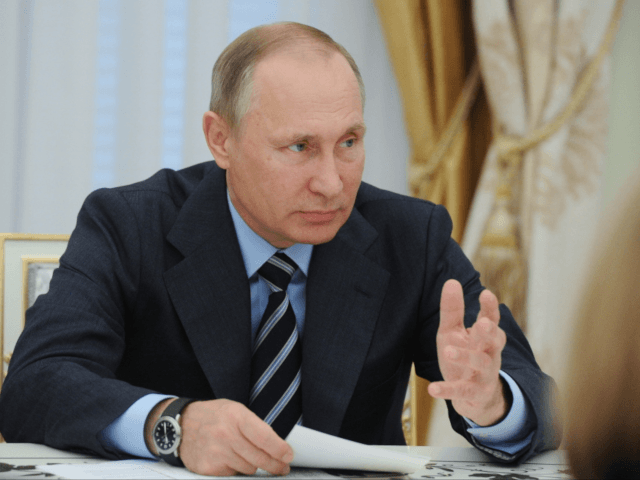Russian President Vladimir Putin, in a meeting with America’s top diplomat, urged more cooperation between Moscow and Washington on reaching a peace settlement to end the war in Afghanistan, warning that the Taliban is “getting stronger,” a Kremlin presidential aide revealed Tuesday.
In a statement carried by Russia’s state-owned TASS news agency, Putin’s aide Yury Ushakov noted that Putin and Pompeo discussed America’s longest foreign military engagement on Tuesday.
Ushakov noted that Putin urged cooperation in restoring a balance of power in Afghanistan.
According to the latest U.S. government assessment, the Taliban controls or contests about half of Afghanistan’s districts, where more than 35 percent of the population resides.
The terrorist group has intensified attacks during the direct peace talks with the United States that began more than a year ago, expanding its already unprecedented influence into even more territory amid the negotiations.
Ushakov declared:
On the issue of Afghanistan, the [Russian] president and the [U.S.] secretary of state also noted rather good cooperation between specialists of our countries. Moreover, our president noted that [peace] settlement in Afghanistan is a rather complicated issue as the process itself is difficult. At the same time, the positions of the Taliban are getting stronger. So we need to step up cooperation and try to achieve the balance of power in this country.
His comments came as the United States is engaged in negotiations to push the Taliban into a reconciliation agreement with the Afghan government.
So far, the Taliban has refused to allow Kabul to participate in the ongoing peace talks, arguing that the legitimate government of Afghanistan is a U.S. puppet.
The Taliban, fighting to establish a sharia-compliant Islamic emirate in Afghanistan, maintains that it will only negotiate with Kabul after the complete withdrawal of foreign forces from Afghanistan.
Conceding that a military victory is unattainable, Trump administration officials have stepped up peace negotiations.
Trump administration officials have made the political reconciliation between Kabul and the Taliban the primary goal of its strategy to end the more than 17-year-old war.
Negotiations have resulted in some draft agreements, namely the withdrawal of U.S. forces in exchange for Taliban assurances that the group will not allow international jihadi organizations like its ally al-Qaeda to operate on Afghan soil.
The Taliban has rejected U.S. proposals to leave behind a counterterrorism force to ensure the Taliban keeps its promise.
Russia and Afghanistan’s next-door neighbor China have expressed support for the ongoing efforts by the United States to end the war.
Echoing the desires of war-weary Americans and the Taliban itself, both Russia and China want the United States to leave Afghanistan.
Last month, Russia, China, and the United States participated in a trilateral meeting in Moscow to discuss peace efforts in Afghanistan.
All three countries urged the Taliban to engage in talks with the Afghan government as soon as possible.
Last week, America’s top peace negotiator, U.S. special reconciliation envoy Zalmay Khalilzad noted on Twitter that the Trump administration and the Taliban are making “steady but slow progress on aspects of the framework for ending the Afghan war.”
Nevertheless, he pointed out that the current pace of negotiations is insufficient when you consider that “so much conflict rages and innocent people die.”
“We need more and faster progress. Our proposal for all sides to reduce violence also remains on the table,” Khalilzad said.

COMMENTS
Please let us know if you're having issues with commenting.